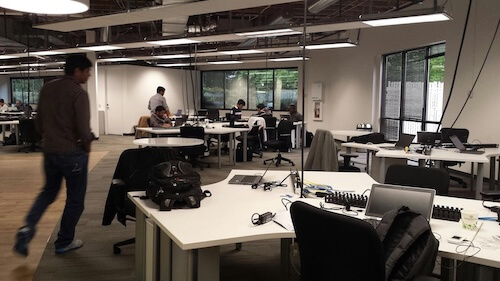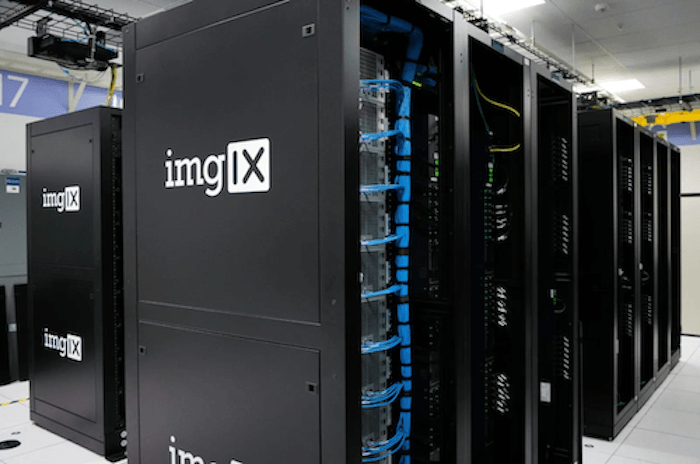Custom manufacturing software development for smarter, leaner operations
Whether you're a discrete manufacturer, process plant, or smart factory leader, CIGen helps streamline production, quality, and supply chain management with Azure-powered custom software solutions and real-time operational intelligence

Modernize manufacturing systems with CIGen
CIGen helps manufacturers evolve legacy software and siloed systems into modern, integrated solutions that scale with your operations. Our team understands the needs of production planners, operations managers, and digital transformation leaders.
Modernize shop floor control, production tracking, and machine connectivity with scalable, cloud-integrated MES tools.
Extend your ERP system (SAP, Oracle, Dynamics) with custom modules for production scheduling, inventory, or compliance.
Streamline collaboration and change management with tools that connect engineering, design, and production systems.
Automate defect tracking, corrective actions, and regulatory compliance reporting with tailored QMS solutions.
Optimize inbound/outbound logistics, reorder points, and real-time stock levels with connected warehouse systems.
Monitor machine health using IoT data and schedule interventions with minimal production impact.
Visualize OEE, downtime, energy usage, and workforce KPIs in real-time using Azure Synapse and Power BI.
Embed machine learning and GenAI tools to assist with quality checks, process optimization, and planning decisions.
Manufacturing software development company helps:
Build custom factory apps
Develop software tailored to your production logic — from order-driven manufacturing to automated line control.
We replace generic solutions with tools that reflect your workflows, from engineering to shipping.
Integrate MFG systems
Bridge siloed production tech stacks by integrating MES, ERP, SCADA, and PLM environments.
CIGen ensures seamless data flow across your operations through secure APIs and Azure cloud connectors.
Modernize legacy systems
Rebuild aging, rigid manufacturing systems into modular, scalable, and secure architectures using .NET, Azure Kubernetes Service, and DevOps best practices.
This transformation reduces technical debt, improves system reliability, and sets the stage for future AI and IoT integration.
Manufacturing software development services
CIGen’s custom manufacturing software development services help you digitize operations, modernize legacy apps, and unlock AI and IoT-driven insights, all tailored to your industry challenges.
Build applications that manage shift schedules, capacity planning, and shop floor sequencing.
Add specialized logic to your existing MES for batch tracking, traceability, or compliance.
Design intuitive interfaces for machine operators, quality teams, and maintenance crews.
Enable on-the-go access to reports, work orders, and real-time alerts via .NET MAUI or React Native apps.
Evaluate existing tools, define migration paths, and prioritize upgrades based on business impact.
Break down monoliths into maintainable services using .NET 7 and Azure Functions.
Move factory-related systems to the cloud to enable remote access, resilience, and real-time analytics.
Improve usability and reduce training time with modernized operator screens and admin panels.
Build connectors between SAP, Oracle, or Dynamics ERP systems and your production execution layer.
Ingest sensor and machine data from SCADA, PLCs, and OPC-UA endpoints into cloud analytics pipelines.
Integrate design and quality management systems to enable traceability and change control.
Use Azure Integration Services to streamline communication between on-prem and cloud systems.
Use AI models trained on equipment data to forecast failures and reduce downtime.
Implement computer vision systems for real-time defect detection on production lines.
Apply AI to optimize production sequences based on real-time constraints and orders.
Use GenAI tools to automate technical report generation, SOP creation, or knowledge base enrichment.
Design pipelines and storage solutions using Azure Synapse, Data Lake, and Power BI.
Visualize throughput, cycle time, and performance loss using tailored Power BI dashboards.
Forecast throughput, yield, or demand fluctuations using time-series ML models.
Replace manual reporting processes with scheduled insights and dynamic visualizations.
Let’s build smarter manufacturing processes together.
Empower your operations with software built for agility, accuracy, and scale — from the shop floor to the boardroom.
Why hire a manufacturing software development company?
Get solutions tailored to your shop floor processes, MES integration, and batch manufacturing needs.
Unify your ERP, PLM, SCADA, and MES environments with secure, scalable APIs and cloud connectors.
Use AI and IoT to forecast maintenance, optimize throughput, and reduce resource waste.
Access live production data, downtime reports, and machine performance metrics to make fast, informed decisions.
Automate inspection, traceability, and compliance workflows with AI and analytics-enhanced tools.
Build cloud-native, flexible systems that adapt to changing demands, supply chain disruptions, and tech evolution.
AI for manufacturing: 7 popular applications
Top AI technologies used in manufacturing
Clients about our cooperation
See what our clients say about the way our team helped them leverage their business potential.

Other services
App modernization
Boost performance, accelerate deployments, and reduce costs, all while enhancing key
business metrics.
Azure migration
Leverage the expertise of Azure cloud to fuel your digital transformation journey, ensuring a competitive edge in a tech-driven marketplace.
Cloud-native development
Embark on a digital transformation journey that amplifies your business agility and operational excellence.
Mobile development
Our Azure-centric mobile development services merge innovation with efficiency, turning your bold ideas into dynamic, user-centric mobile applications.
Manufacturing-savvy expertise
At CIGen, we understand that manufacturers face pressure to innovate while maintaining quality, efficiency, and regulatory compliance. Our team brings deep technical expertise aligned with the complexities of industrial production, system interoperability, and data-driven operations.
Manufacturing processes often experience fluctuations due to material inconsistency, machine wear, or human input. We develop software that captures real-time data from production lines to monitor variability and ensure quality control.
Closed-loop systems help automatically adjust process parameters to maintain consistency and reduce waste.
Full product traceability is essential in regulated industries and for quality assurance.
Our solutions support granular tracking of components, batches, and production steps — from raw materials to final goods. This enables faster audits, better root cause analysis, and adherence to industry standards like ISO 9001 or FDA regulations.
Many factories rely on aging infrastructure like PLCs, SCADA systems, and custom-built apps that are difficult to scale or integrate.
CIGen specializes in bridging the gap between old and new technologies, enabling connectivity without disrupting ongoing operations. We modernize legacy systems or wrap them in APIs to extend their functionality.
Manufacturing environments often struggle with fragmented data across ERP, MES, SCADA, and third-party systems. We unify IT and OT ecosystems by integrating data sources into a centralized architecture. This allows for real-time visibility, cross-department collaboration, and better strategic planning based on unified insights.
Manufacturing software development lifecycle
The blueprint below is our tried and tested software development lifecycle for clients from the manufacturing industry, tailored for industry success
Identify production bottlenecks, data gaps, and transformation goals.
Analyze equipment, software, and user processes for integration planning.
Define an architecture that meets manufacturing-specific constraints and regulatory requirements.
Develop apps in iterative sprints with stakeholder feedback and test runs on the shop floor.
Connect with MES, SCADA, ERP, and IoT systems for real-time operation.
Simulate live load and edge cases across lines, shifts, and plant environments.
Support change adoption with training, UX design, and process documentation.
Scale and maintain software as production needs evolve or expand globally.
Software development for manufacturing: FAQ
We aim to supply our clients with exhaustive information about the way we engage in partnership for ease of doing business and transparency. We’ve collected a few facts that help you understand our processes.
It refers to building tailored digital solutions that align with specific production workflows, factory equipment, and compliance requirements.
This can include manufacturing execution systems (MES), quality tracking platforms, predictive maintenance tools, and real-time analytics dashboards — all customized to your plant’s operations.
AI is transforming manufacturing by enhancing visibility, automation, and operational efficiency.
Top use cases include:
- Predictive maintenance to reduce downtime by forecasting equipment failures
- Quality control using computer vision to detect defects in real time
- Production scheduling optimization based on capacity, machine availability, and order priorities
- Energy efficiency analytics to reduce waste and align consumption with demand
- Supply chain risk forecasting using historical and external disruption data
- Process anomaly detection to flag unusual patterns before defects occur
Machine learning enables manufacturers to make data-driven decisions that improve output, reduce waste, and increase agility.
Common ML use cases include:
- Demand forecasting to align production with seasonal or market-driven shifts
- Process optimization by modeling relationships between parameters and output quality
- Yield prediction based on sensor and batch data
- Automated visual inspection with anomaly detection from camera feeds
- Downtime pattern analysis to uncover hidden inefficiencies
Computer vision automates visual tasks on the production line and in the warehouse.
Typical use cases include:
- Visual defect detection on parts, surfaces, or assemblies
- Barcode, label, and QR code scanning for traceability and logistics
- Occupational safety monitoring via camera-based detection of PPE compliance or restricted zone breaches
- Product dimensioning for packaging or machine calibration
- Assembly verification to ensure proper installation or fit
Deep learning is used when complex patterns or unstructured data are involved.
It supports:
- Advanced image classification for subtle defect detection beyond rule-based systems
- Speech recognition and command systems in noisy industrial environments
- Sensor fusion models that combine vibration, acoustic, and thermal data
- Dynamic routing and AGV control in autonomous shop floor operations
- Predictive modeling for rare but critical failure scenarios
Yes — AI significantly enhances quality assurance across the production lifecycle.
Solutions typically include:
- Real-time inspection tools for surface, dimensional, and assembly defects
- Automated root cause analysis using correlation models across production data
- Predictive defect analytics based on historical process and material variables
- Anomaly detection to flag deviations from normal process behavior
- Trend-based alerts to notify operators before defects become systemic
Yes. Our certified Azure engineers can integrate modern AI capabilities into legacy environments using APIs, middleware, or edge computing.
This allows older systems to:
- Stream data into cloud analytics platforms
- Trigger predictive models or alerts
- Enhance visibility without full re-platforming
- Enable real-time dashboards and KPIs using historical control data
- Connect to modern MES, ERP, or IIoT ecosystems
Let’s redefine production efficiency in your manufacturing facility together














